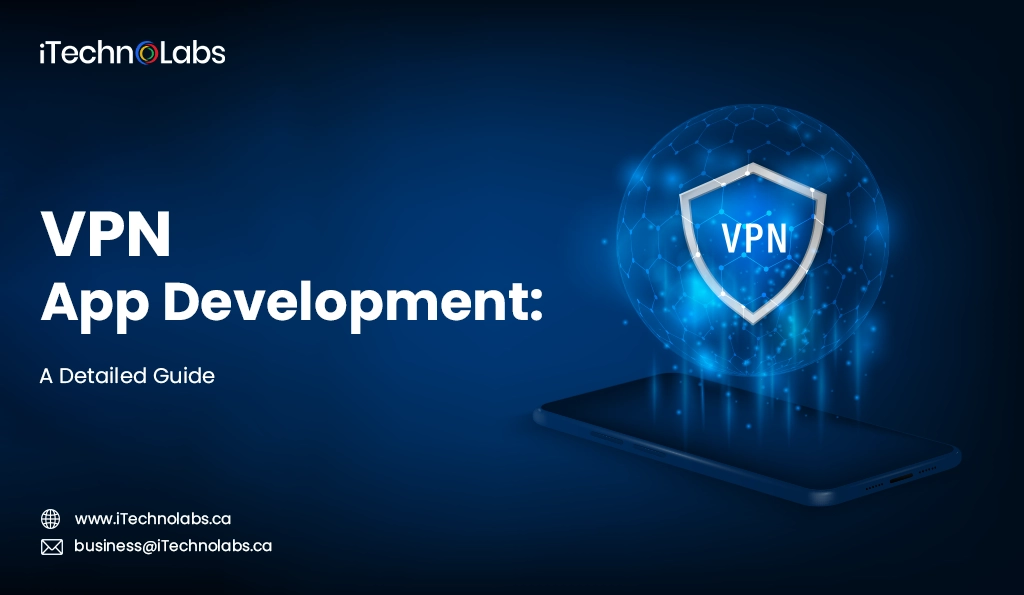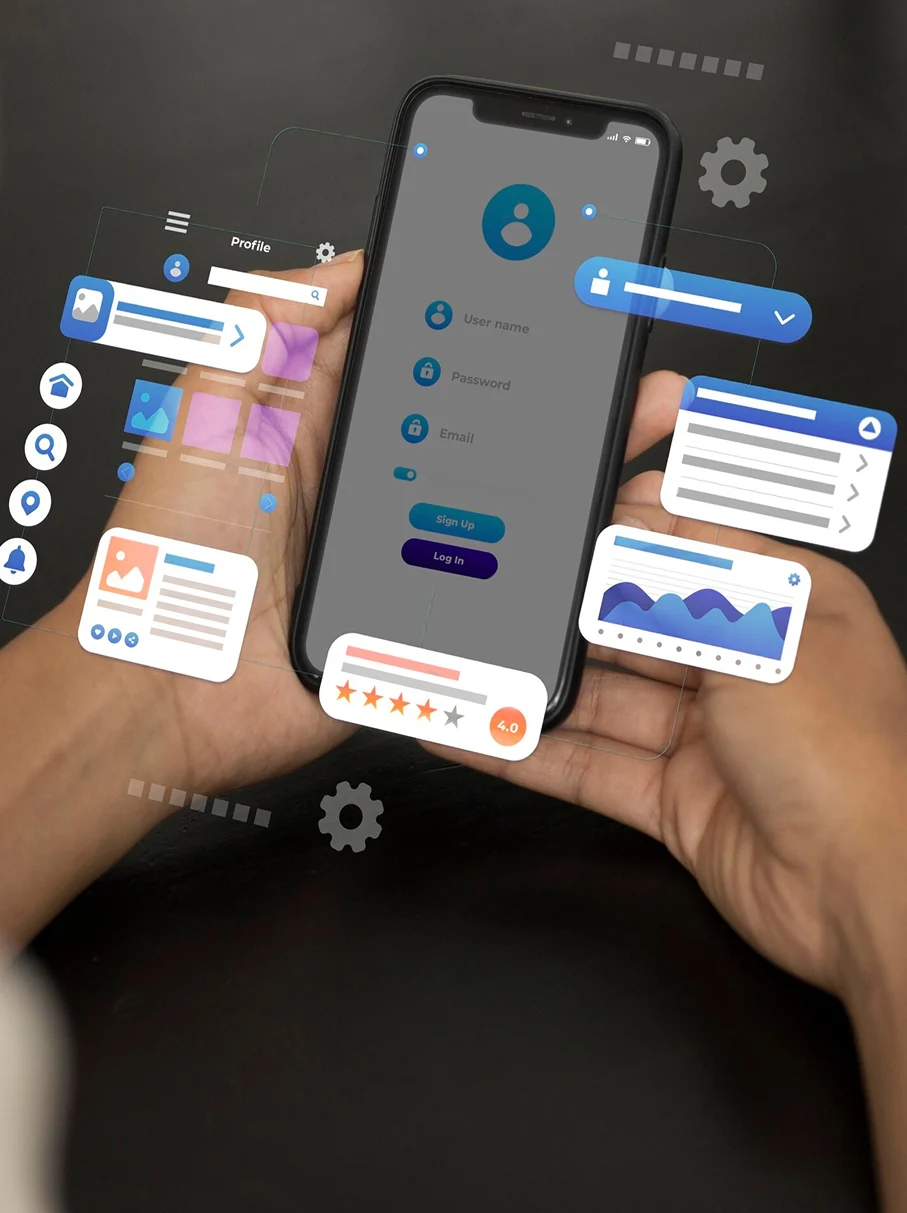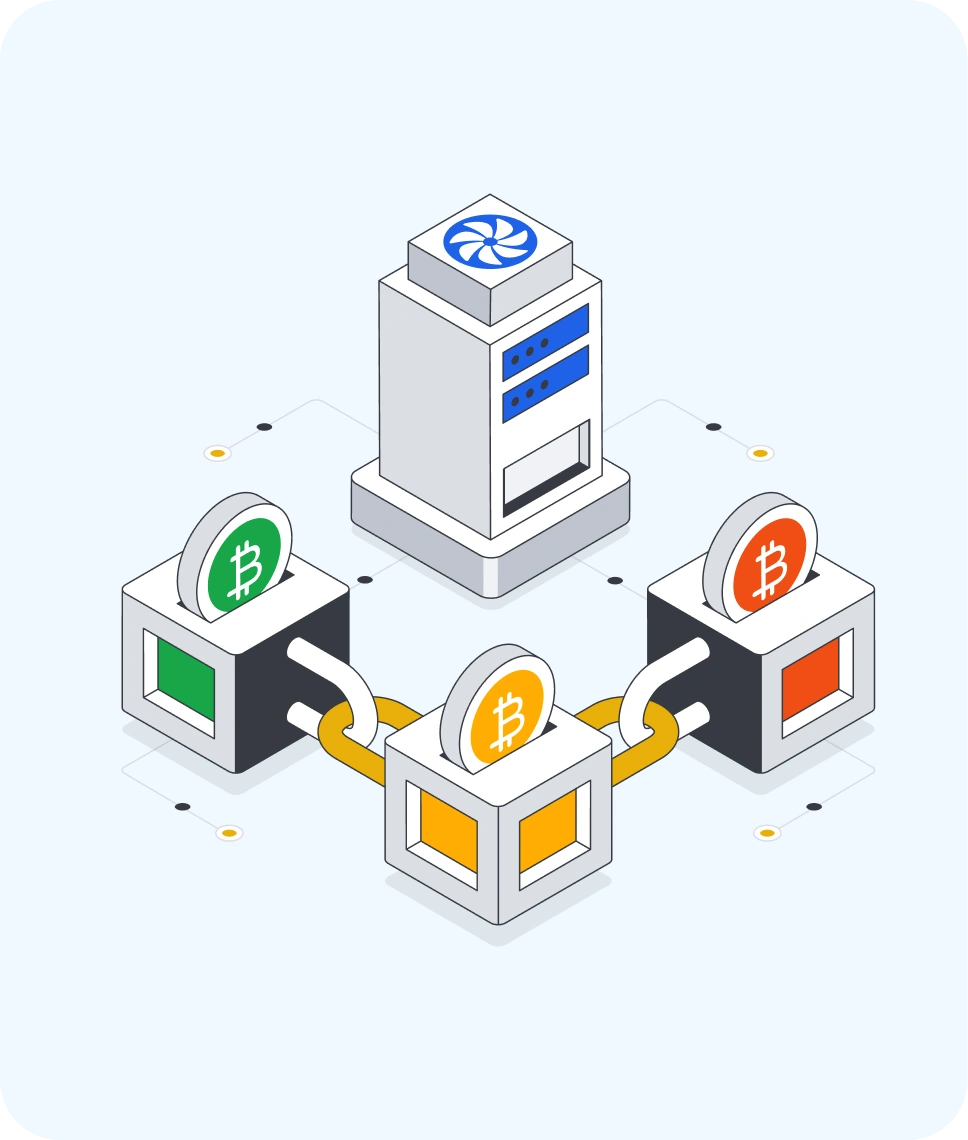In recent years, the demand for Virtual Private Network (VPN) application has increased, which is inspired by increasing concern about online security and privacy. VPN -er establishes secure, encrypted communication channels between users and networks, providing confidential access to resources and protects sensitive information from potential dangers. This increased awareness has made a significant expansion in the VPN market.
According to a report from the Consistent Market Insight, the global VPN market is estimated to reach $ 68.25 billion in 2025 and is expected to grow to $ 234,86 billion by 2032, a mixed annual growth rate (CAGR) of 19.3% from 2025 to 2025 to 2032.
In this blog, we will become a complex process of VPN application development. We will detect large components, underlying technologies and best practices required to create a safe and user-friendly VPN solution. Whether you are an ambitious developer, who is eager to understand VPN’s mechanics or are eager to protect online activities, this guide provides valuable insight into the world of VPN development.
Key Aspects of VPN App Development
1. Security Protocols
Secure communication channels are required for the VPN app. Use of protocols such as OpenVPN, Wireguard or IKEV2/IPSEC ensures encrypted, private data transfer. The right option with protocols is important to provide both security and speed.
2. Encryption Standards
Use of AES-256 encryption guarantees that the user is protected from data hackers and third parties. Strong encryption is an important factor in protecting sensitive information, such as login information, surf history and transaction details.
3. Cross-Platform Compatibility
Your VPN app should work smoothly across different platforms (iOS, Android, Windows, macOS). This broad compatibility ensures your user base can access the app on any device, providing convenience and expanding market reach.
4. Server Infrastructure
A scalable and reliable server infrastructure is vital for a VPN app’s performance. Deploying servers across multiple regions enables low-latency connections and improves user experience by reducing server load and providing diverse geographic options.
5. User authentication
Safe user approval methods, such as OAuth 2.0, Multi-Factor Authentication (MFA) or Biometrics, make sure only authorized persons can reach the app. It adds an extra layer of security and keeps user accounts safe.
6. Kill Switch feature
A kilo switch automatically connects the Internet. If the VPN connection falls, it ensures that sensitive data is not exposed. This is important to prevent leaks and maintain privacy during a sudden network blocking.
7. User Interface (UI)
A clean, spontaneous user interface makes it easier for users to connect to VPN, select the server and customize settings. A user-friendly interface improves commitment and satisfaction, making the app more accessible to extensive target groups.
8. Data Logging Policy
A no-logs policy ensures that the VPN provider does not store any information about users’ online activities. This policy is essential for privacy-conscious users and helps build trust, especially in jurisdictions with strict data laws.
9. Scalability
The VPN app’s architecture must be designed to scale with increasing users. Scalable servers and load-balancing mechanisms ensure that the app can handle traffic spikes without compromising performance.
Step-by-Step Process of VPN App Development
Define the Features
It is totally necessary, prior to delving into the nitty-gritty, to painstakingly jot down the general list of features your VPN app will offer. Although some features may be self-evident, having a definite idea of what users anticipate from a VPN app will be invaluable in effectively prioritizing and optimizing your development process. By doing so, you can ensure that your application will be just right for the needs and desires of your user base and thus elevate their experience to hitherto unreached heights.
Select Operating Systems
Some important factors should be considered when selecting the operating systems to run your VPN application. First, you should ascertain what the most commonly used operating systems are within your target market. For instance, if your target users are in China, Windows may not necessarily be your best option, as it enjoys a minuscule share in the Chinese market. Besides, you should also be concerned about the compatibility of your chosen OS with the core technologies and functions of your VPN application.
Choose Business Model
An important consideration in the selection of the appropriate business model will have a direct bearing on the profitability and sustainability of the business. Typical choices are free versus subscription models or freemium models. The audience in question, competitive level already present, and revenue goals are the most critical driving factors behind any business model decision. For example, if you are going towards price-sensitive users in an already competitive market, a freemium or free model may be the better choice. On the contrary, if your target group is willing to pay for premium features and you have relatively low competition, a subscription model can actually be more profitable in the long term.
Design User Interface
UI is of great importance to the UI users’ attraction and storage. In today’s fast-changing digital world, users expect spontaneous and good-looking interface that are easy to navigate. This is especially important when it comes to VPN applications, where the user must handle complex network configurations and security protocols. Therefore, it can be an important contributor to securing the application by investing time and effort in a customized user interface. Not only this, it is extremely important to update the user’s answers and increase the overall user experience to update it continuously and from time to time.
Extract UI
While developing the user interface, it is necessary to maintain the simplicity and effectiveness of extracting data. This entails that users must be able to extract information from your VPN app easily without technical hassles or complex procedures. This can range from having one-click connect buttons and simple server selection menus. A simple and minimalist interface can also lead to faster extraction of information since cluttered interfaces are overwhelming and confusing to users.
Build APIs
APIs, or application programming interfaces, are of the highest significance in the operation and compatibility of your VPN application. They enable communication between different systems without issues and can enable features such as auto-server choice, location spoofing, and secure transfer of data. Good APIs will not only improve your application’s performance overall but also attract users who value convenience and performance.
Develop Admin Panel
Other than a simple user-friendly interface for users, another crucial step is to build an admin panel to monitor and control your VPN application. It might include features such as user monitoring, monitoring bandwidth usage, and server setting control. An efficient admin panel will not only make your job easy to monitor and control your application but also provide insights on users’ usage trends and decisions.
Configure Servers
In all VPN application settings, server infrastructure is one of the most important factors. Servers need to be set up in sufficient numbers and in suitably chosen locations in order to facilitate very fast and reliable connections to end users. Examples include arranging for VPS servers in different regions, fine-tuning the network settings, and continuously monitoring server performance. A properly configured server infrastructure will not only improve the user experience but also confer credibility and trustworthiness to your application.
Integrate Protocols
Security and privacy are the lifeline of your VPN application. It is mandatory for your application to have the integration of various protocols such as OpenVPN, IKEv2, or WireGuard to cover methods for secure transmission of data and encryption methods. The operation of these protocols with their own mechanisms and algorithms to secure user data from external attacks differentiates them from one another. In return, this flexibility for users to choose different protocols that match their needs for security also contributes to the reliability of the application as a whole.
Add Other Features
Essential features of the VPN application could be further expanded by adding additional features to make the application attain a unique proposition value. This can include split tunneling, multi-hop connections, kill-switch handling, ad blocking, etc. Split tunneling lets the user configure which traffic goes through the VPN server and which through the normal network connection. Multi-hop connections increase the security angle with traffic routed through multiple servers. A kill switch disconnects the user from the Internet if the VPN connection drops, preventing any potential data leaks. Ad blockers can also be integrated to block annoying ads and unwanted tracking while operating through the VPN. With such a great amount of added value to the inclusion of these features, the appeal of your application would certainly be enhanced.
Also, read: How to Create a Cross-Platform Stock Trading App Using Flutter
Benefits of VPN application:
Enhanced Security:
Your VPN program can offer excellent privacy and security to its customers thanks to the incorporation of many protocols, strong encryption, and sophisticated security features. By itself, this will go a long way to improve the trustworthiness and credibility of your application since people worry more about safeguarding their internet data against hackers and cyber assaults. Using state-of-the-art security features, including secure tunneling and zero-logging policies, can give your VPN customers a secure browsing experience and peace of mind.
Geographic Flexibility:
By letting users link to server in many countries, a VPN offers them the total freedom to reach geopolized media from everywhere on earth. Users can have unlimited and even internet experience, whether they look at their favorite programs while traveling or going to specific websites for a field. Especially useful for companies with regular passengers, migrants and an international appearance, as it enables secure external remote access and continuous connection to boundaries.
Cost Savings:
A VPN helps users to open up great financial savings. By connecting to local VPN servers, first off, they can avoid costly foreign data fees and benefit from local internet pricing. Secondly, simply connecting to a VPN server in a region where the material is available enables users to avoid payment for expensive streaming service subscriptions not offered in their country. For consumers looking for both value and convenience, these cost-cutting features make your VPN software an appealing option.
Improved Performance:
As you know, appropriate VPN applications improve Internet performance by using advanced features such as shared tuning and multi-hop connection. Split Tunling allows users to customize their internet connection by directing specific traffic through the VPN server, while other traffic on VPN. So users are secured with a spontaneous and fast browser experience, especially where online games, video conferences or large file transfer requires a sharp and stable internet connection. And of course, several privacy and security for performance and oblivion have been provided via several servers under VPN umbrella through routing Internet traffic through multi-hop connections.
Anonymous Browsing:
For many privacy-conscious users, the most valuable characteristics of the VPN application include your oblivion when you surf. It is almost impossible for someone to hide the user’s IP address and creep all internet traffic. This technique becomes important when protecting privacy online, especially in countries with very strict sensor laws. To give users a safe and anonymous way to browse users really free users to cross the Internet without worrying about keeping an eye on or compromising their confidential data.
How much does it cost to build a VPN application?
VPN app development costs would typically amount to $25,000 to a whopping $500,000, depending on factors such as app complexity, features required, approach taken in its development, and location of the involved persons.
Below is a breakdown of estimated costs based on different types of VPN applications:
| App Type | Description | Estimated Cost Range |
| Basic VPN App | Provides base VPN capabilities such as safe connection, server choosing, and encryption. | $25,000 – $50,000 |
| Standard VPN App | Provides user auth, multi-server locations, plain UI/UX, and logging. | $50,000 – $100,000 |
| Advanced VPN App | Offers features such as a kill switch, tunneling, multiple devices, and analysis. | $100,000 – $250,000 |
| Enterprise-Grade VPN App | Purpose-built for organizations with custom panels, high-security encryption, admin functionality, etc. | $250,000 – $500,000+ |
Additional Cost Considerations
- Ongoing Maintenance & Updates: One has to set aside about 15%-25% of the total development cost annually to cover routine bug fixes, security updates, and adding new features.
- Infrastructure & Hosting: Server maintenance, bandwidth, and cloud services (AWS, Azure, etc.) may range from $500 to $5,000 and above every month, depending on usage.
- Licensing & Compliance: There might be regulatory fees and licensing expenses to account for based on regions served.
Suggested Article: Zillow API Cost: Benefits & Factors To Use it
Costs to Consider When Building a VPN Application
In planning to develop a VPN application, both the initial development cost and other related expenses must be factored into the total budget. Here’s a more detailed breakdown:
1. Initial Development
- Estimated Cost: $25,000 – $100,000
- This includes core development activities such as:
- App architecture and design
- Backend and frontend development
- Initial testing and debugging
- Basic feature integration (e.g., server selection, secure connection, encryption)
Why it matters: These foundational steps ensure a seamless and secure user experience right from launch.
2. Advanced Features Integration
- Estimated Cost: Up to $500,000+ depending on feature complexity
- Examples of advanced features:
- Multi-hop connections (routing through multiple servers)
- Built-in ad and tracker blockers
- Split tunneling
- Kill switch functionality
- Smart location switching
Why it matters: These add security, improve app performance, and appeal to tech-inclined users willing to pay for premium tiers.
3. Development Team
- Cost Varies Based On:
- Geographic location (e.g., North America vs. South Asia)
- Team size and structure (in-house vs. outsourced)
- Experience and specialization level
Tip: Choose a development team that balances expertise with cost efficiency, ideally one with prior VPN or cybersecurity app experience.
4. Maintenance and Updates
- Annual Cost: Approximately 15–25% of the initial development cost
- Covers:
- Regular Bug Fix and Security Update
- Operating system and device compatibility update
- Customer help and troubleshooting
Why it matters: Maintenance app ensures reliability, data security and long -term user satisfaction.
5. Licensing & Server Infrastructure
- Driving Cost: $500- $5000+/Month
- Required for:
- Server hosting (self-managed or through third-party cloud providers like AWS, Azure)
- VPN protocols and third-party integrations
- Legal licenses depending on countries of operation
Pro Tip: A reliable, globally distributed server network ensures faster connections and a better user experience.
6. Marketing and Promotion
- Estimated Budget: Flexible, based on campaign scope
- Marketing strategies might include:
- App Store Optimization (ASO)
- Paid ads (Google Ad, Facebook, etc.)
- Effective and associated marketing
- PR and material marketing
Why it matters: Even the most secure VPN app must be seen. Marketing generates awareness, trust, and user acquisition.
Tech Stack to Develop a VPN App
A strong technique for combining a safe and high -performing VPN app to develop a protocol and tool requires a strong technique to combine a strong technique. The choice of stack depends on platform compatibility, performance needs and scalability. There is a brief observation of the typical technological stack used below:
| Component | Technologies/Tools |
| Frontend | Swift (iOS), Kotlin (Android), React Native |
| Backend | Node.js, Python, Golang |
| Protocols | OpenVPN, WireGuard, IKEv2/IPSec |
| Encryption | AES-256, RSA-2048 |
| Servers | AWS, DigitalOcean, Azure |
| Database | MongoDB, PostgreSQL |
| Authentication | OAuth 2.0, JWT |
This stack ensures seamless connectivity, military-grade encryption, and scalability for VPN applications.
Are you planning to build a VPN application?
Conclusion:
Developing a VPN app is not just a case of coding; This includes full planning, knowledge of security standards and a dedication for regular support and updates. After the launch from the development phase to the launch of server infrastructure, function integration and maintenance, each aspect is important for the credibility of the app and the user’s confidence. Prices can vary greatly depending on complexity, functions and competence for the development team. Therefore, it is important to determine your goals, establish features and architects for long-term scalability. A properly designed VPN application not only protects consumer privacy, but also provides a smooth and effective surfing experience. Changing a strategic strategy on the budget and development side will ensure that your application is differentiated into an aggressive market and offers an end user to the real value.
Also, read: How Much Does 3D Game Development Cost in 2025?
FAQs
1. How to develop a VPN application?
To develop a VPN application, start by choosing a secure protocol (e.g. OpenVPN or Wireguard), integrate strong encryption standards (AES-256), and select a programming language (e.g. Swift for iOS, Cotters for Android). Design a user-friendly interface, use server infrastructure and secure data privacy without policy no-legs. Testing, troubleshooting and regular updates are also needed.
2. How much does it cost to develop the VPN app?
The cost of developing the VPN app varies depending on complexity, functions and development teams. The cost of an original VPN app can cost between $ 25,000 and $ 100,000. Advanced facilities such as multi-hop connections, Eddie blocking and customized user interface can continue the cost of over $ 500,000. The ongoing maintenance and server cost should also be considered.
3. Is VPN app beneficial?
Yes, a VPN app can be beneficial. Income membership models can come from the procurement of once, or with premium features with femium plans. Participation or business solution with colleagues can provide additional income streams. Increasing the demand for privacy and security supports the long-term profitability of VPN services.
4. What is the programming language for VPN?
Programming language option for VPN development depends on the stage. For iOS, Swift is used often, while Kotlin or Java is preferred for Android. For the development of platforms can react or vibrantly be used. Backend services are often performed using Node. JS, Python, or go for scalability and performance.
5. Is VPN legal or illegal?
VPNs are legal in most countries, but their use can be regulated or banned in some courts. In countries such as China, Russia and Iran, it may be illegal to use VPN without authorities. Always check local laws before using or developing VPN, as fractures can be punished or punished.
6. How Does VPN Make Money?
VPN providers usually make cash through subscription models, charging customers a monthly or annual fee. Some VPNs provide unfastened plans with restrained capabilities and monetize thru advertisements or promoting person records (though reputable VPNs preserve a no-logs coverage). Additional revenue can come from associate advertising, partnerships, or organization solutions for organizations.










